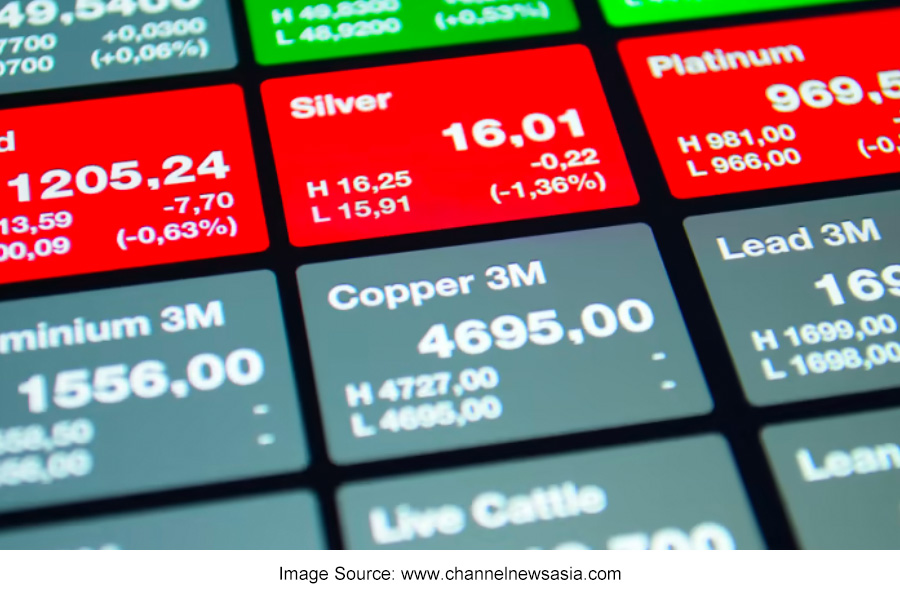Commodity trading, a dynamic and potentially rewarding endeavour, has captured the attention of beginners seeking to diversify their investment portfolios. However, stepping into the realm of commodity trading can be overwhelming without the right knowledge and approach. In this comprehensive guide, we’ll take you on a journey through the essentials of commodity trading accounts, providing valuable insights and practical tips to help beginners navigate this intricate world with confidence.
Understanding Commodity Trading: Basics for Beginners
Before diving into the intricacies of commodity trading accounts, it’s crucial to grasp the fundamental concepts. Commodities are tangible goods such as gold, oil, agricultural products, and more, traded in global markets. Commodity trading involves speculating on the price movements of these goods. As a beginner, familiarise yourself with the various types of commodities and their roles in the market to build a strong foundation.
Choosing the Right Commodity Trading Account
Selecting the right trading account and brokerage is akin to laying the foundation of a successful trading journey. Online trading accounts offer accessibility and convenience, while traditional accounts may provide a more personalised approach. Research and compare different brokerages, considering factors such as account types, fees, available commodities, and customer support. Your chosen account should align with your trading goals and preferences.
Learning the Market Dynamics
Commodity prices are influenced by a plethora of factors, including supply and demand, geopolitical events, weather patterns, and economic indicators. Stay informed about these market dynamics to make informed trading decisions. News outlets, financial websites, and economic calendars can be valuable sources of information. Building your knowledge of market trends empowers you to anticipate price movements and seize opportunities.
Developing a Trading Strategy
A well-defined trading strategy is your compass in the complex world of commodity trading. Identify your trading style – whether you’re a day trader, swing trader, or long-term investor. Define your goals, risk tolerance, and entry/exit criteria. Remember that consistency is key; avoid making impulsive decisions based on emotions or short-term fluctuations.
Risk Management and Diversification
Commodity trading, like any investment, carries inherent risks. Set clear stop-loss orders to limit potential losses and ensure position sizing aligns with your risk tolerance. Diversification across multiple commodities reduces the impact of volatility on your portfolio, enhancing stability over the long term.
Starting Small and Practising
For beginners, starting small is sage advice. Begin with a modest investment to gain practical experience without risking substantial capital. Additionally, consider practising with demo accounts or paper trading to hone your skills and test your trading strategy in a risk-free environment. Mistakes made during this phase can be invaluable learning experiences.
Utilising Technology and Tools
In the digital age, technology is a powerful ally in commodity trading. Utilise online trading platforms, charting tools, and market analysis software to enhance your decision-making process. These tools provide real-time data, technical indicators, and trend analysis, enabling you to make informed trading choices.
Managing Emotions and Psychology
The psychological aspect of trading cannot be overlooked. Cultivate emotional discipline by sticking to your trading plan and avoiding rash actions during times of market volatility. Monitoring and Adapting
In commodity trading, adaptability is a key trait. Continuously monitor your trades and the market’s performance. Regularly review your trading strategy and adapt it as needed based on market trends and your own experiences. Flexibility allows you to seize new opportunities while avoiding prolonged periods of losses.
Seeking Education and Continuous Learning
Successful commodity traders are lifelong learners. Invest in your education by reading books, taking online courses, attending webinars, and participating in trading forums. Stay up-to-date with industry news and trends to remain competitive in a constantly evolving market.
In conclusion, As you embark on your commodity trading journey, armed with the insights and tips from this guide, remember that patience, discipline, and continuous learning are your allies. Commodity trading accounts offer a gateway to a world of potential profits, but they also demand respect for the market’s dynamics and a commitment to ongoing improvement. By understanding the basics, utilising technology, managing risk, and staying emotionally balanced, you can navigate the world of commodity trading with confidence and set your course for success. Happy trading!
Harness the power of technology and tools, much like a captain relies on sophisticated navigation equipment. Online trading platforms and stock market apps equip you with real-time data and analysis, enhancing your decision-making prowess.







